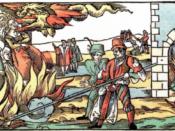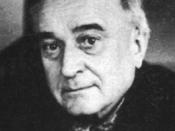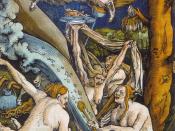The practise of witchcraft is of great interest to anthropologists, because it is a concept that pervades many societies. The most influential study is Evan's Pritchard's Witchcraft, Oracles and Magic among the Azande and ever since this work was published, anthropologists have debated about definitions of witchcraft, reasons why it exists in so many societies, and whether it should be regarded as rational or irrational. Historians often concentrated on the absurdity of witchcraft and attempted to analyse how these irrational beliefs could have persisted for so long in the West. However, anthropologists are interested in understanding witchcraft in the context of the culture under study, and its significance to the society as a whole. In considering the rationality of witchcraft beliefs I will first attempt to define and differentiate between different types of systems, then attempt to account for their existence and explain how they form part of their cultures of origin, before finally questioning whether the concept of rationality should be applied in their analysis.
In order to discuss witchcraft, it is important to distinguish between a range of similar and easily confusable terms. Since Evans-Pritchard, anthropologists have tended to distinguish between witchcraft and sorcery. The former is hereditary, innate, involuntary trait, and it may be possible to discover its presence through an autopsy. A witch exercises his power through psychic means, requiring no physical tools, and this may even be exercised involuntarily. Sorcery, on the other hand, requires medicines and spells, and may be learnt by anyone who is inclined. However, although this distinction is applicable to the Azande of the Sudan its relevance to other African societies is disputed, and in modern English usage the terms are often used interchangeably. Hendry (1999) cites Middleton (1963), who suggested the term wizardry to cover all mystical activities and...


